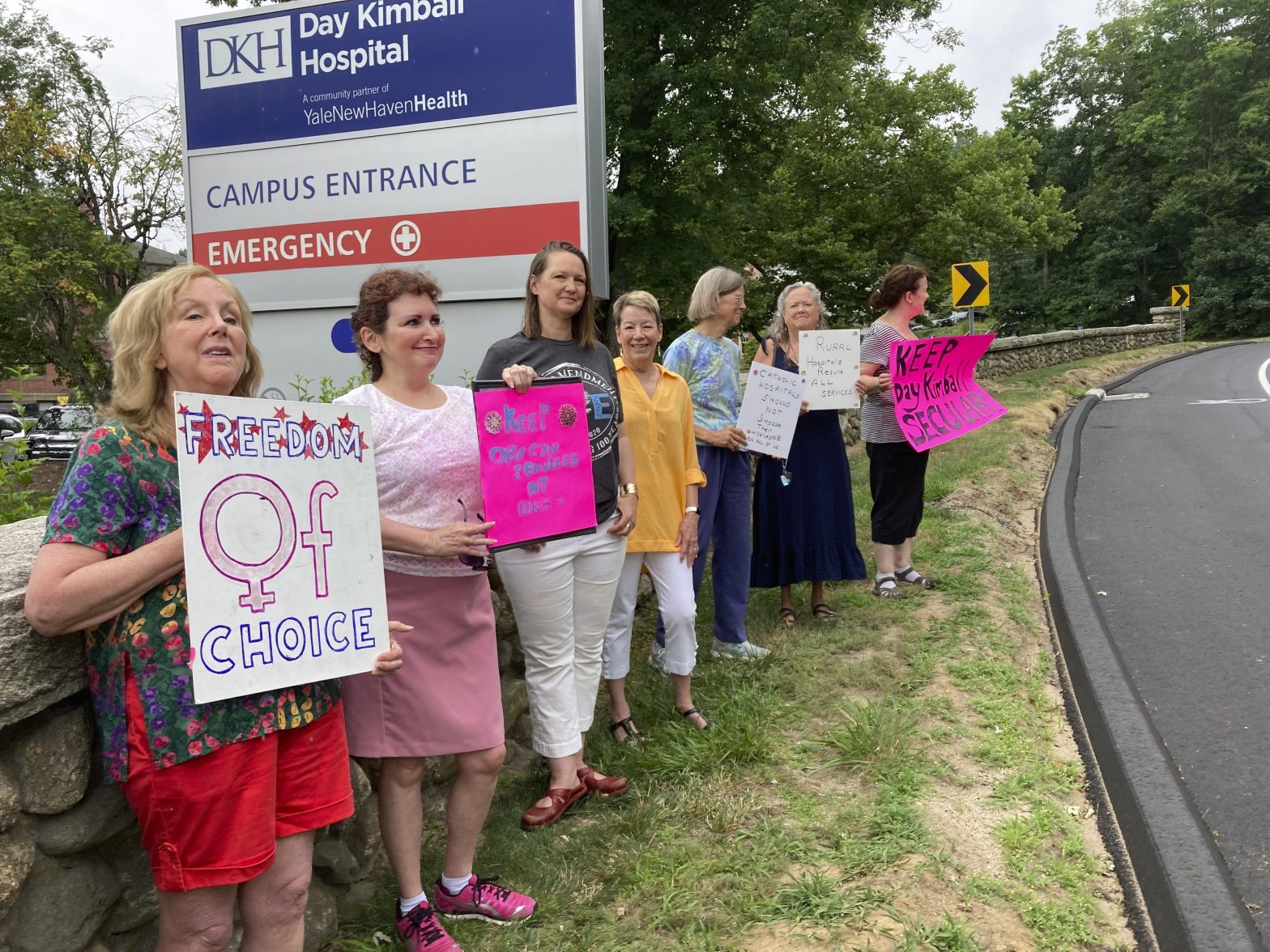Catholic Hospitals’ Growth Impacts Reproductive Health Care

PUTNAM, Conn. (AP) — Even as numerous Republican-governed states push for sweeping bans on abortion, there is a coinciding surge of concern in some Democratic-led states that options for reproductive health care are dwindling due to expansion of Catholic hospital networks.
These are states such as Oregon, Washington, California and Connecticut, where abortion will remain legal despite the U.S. Supreme Court’s recent ruling overturning Roe v. Wade.
Concerns in these blue states pertain to such services as contraception, sterilization and certain procedures for handling pregnancy emergencies. These services are widely available at secular hospitals but generally forbidden, along with abortion, at Catholic facilities under directives set by the U.S. Conference of Catholic Bishops.
The differing perspectives on these services can clash when a Catholic hospital system seeks to acquire or merge with a non-sectarian hospital, as is happening now in Connecticut. State officials are assessing a bid by Catholic-run Covenant Health to merge with Day Kimball Healthcare, an independent, financially struggling hospital and health care system based in the town of Putnam.
“We need to ensure that any new ownership can provide a full range of care — including reproductive health care, family planning, gender-affirming care and end-of-life care,” said Connecticut Attorney General William Tong, a Democrat.
Lois Utley, a specialist in tracking hospital mergers, said her organization, Community Catalyst, has identified more than 20 municipalities in blue or purple states where the only acute care hospitals are Catholic.
“We are definitely sliding backwards in terms of comprehensive reproductive health,” Utley said. “Catholic systems are taking over many physician practices, urgent care centers, ambulatory care centers, and patients seeking contraception won’t be able to get it if their physician is now part of that system.”
According to the Catholic Health Association, there are 654 Catholic hospitals in the U.S., including 299 with obstetric services. The CHA says more than one in seven U.S. hospital patients are cared for in a Catholic facility.
The CHA’s president, Sister Mary Haddad, said the hospitals provide a wide range of prenatal, obstetric and postnatal services while assisting in about 500,000 births annually.
“This commitment is rooted in our reverence for life, from conception to natural death,” Haddad said via email. “As a result, Catholic hospitals do not offer elective abortions.”
Protocols are different for dire emergencies when the mother “suffers from an urgent, life-threatening condition during pregnancy,” Haddad said. “Catholic health clinicians provide all medically indicated treatment even if it poses a threat to the unborn.”
This approach is now being mirrored in several states imposing bans that allow abortions only to save a mother’s life. There is concern that doctors governed by such bans — whether a state law or a Catholic directive — may endanger a pregnant woman’s health by withholding treatment as she begins to show ill effects from a pregnancy-related problem.
In California, Democratic state Sen. Scott Wiener is among those warily monitoring the proliferation of Catholic health care providers, who operate 52 hospitals in his state.
The hospitals provide “superb care to a lot of people, including low-income communities,” Wiener said. But they “absolutely deny people access to reproductive health care.”
“It’s the bishop, not professional standards, that are dictating who can receive what health care,” Wiener said. “That is scary.”
Charles Camosy, professor of medical humanities at the Creighton University School of Medicine, says critics of the mergers fail to acknowledge a major benefit of Catholic health care expansion.
“These mergers take place because Catholic institutions are willing to take on the really hard places where others have failed to make money,” he said. “We should focus on what these institutions are doing in a positive way — stepping into the breach where virtually no one else wants to go, especially in rural areas.”
That argument has resonance in mostly rural northeast Connecticut, where Day Kimball serves a population of about 125,000.
Kyle Kramer, Day Kimball’s CEO, said the 104-bed hospital has sought a financial partner for more than seven years and would soon face “very serious issues” if forced to continue alone.
Regarding the proposed merger, he said, “Change is always difficult.”
However, he said Day Kimball would remain committed to comprehensive care if the merger proceeds, seeking to inform patients of all options in such matters as contraception, miscarriages and ectopic pregnancies.
As for abortions, Kramer said Day Kimball had never performed them for the sole purpose of ending a pregnancy and would continue that policy if partnering with Covenant.
Despite such assurances, some residents are concerned that the region’s only hospital would become Catholic-owned. Some merger opponents protested outside the hospital last Monday.
Sue Grant Nash, a retired Day Kimball hospice social worker, described herself as religious but said people’s values should not be imposed on others.
“Very important articles of faith that Catholics may have, and I respect completely, shouldn’t impact the quality of health care that is available to the public,” she said.
There have been related developments in other states.
—In Washington, Democratic state Sen. Emily Randall plans to re-introduce a bill that would empower the attorney general to block hospital mergers and acquisitions if they jeopardize “the continued existence of accessible, affordable health care, including reproductive health care.” Gov. Jay Inslee says he is in support of such a measure.
The state has already passed a bill that bars the state’s religious hospitals from prohibiting health care providers from providing medically necessary care to hasten miscarriages or end nonviable pregnancies, like ectopic pregnancies. Under the new law, patients can sue a hospital if they are denied such care, and providers can also sue if they’re disciplined for providing such care.
—In Oregon, the state has new authority to bar religious hospitals from acquiring or merging with another health care entity if that means access to abortion and other reproductive services would be reduced. A law that took effect March 1 requires state approval for mergers and acquisitions of sizable health care entities.
The law also allows the state to consider end-of-life options allowed by hospitals seeking to establish a footprint or expand in Oregon, which in 1994 became the first state to legalize medical aid in dying.
___
Crary reported from New York. Associated Press reporters Rachel La Corte in Olympia, Washington; Andrew Selsky in Salem, Oregon, and Adam Beam in Sacramento, California, contributed.
























